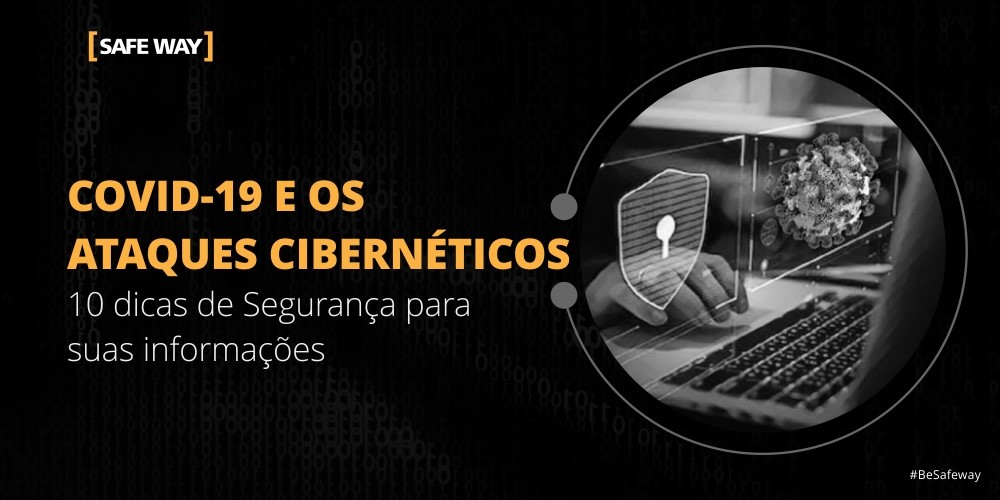* Mileny Ferreira
In view of the increasing dependence and evolution of digital tools within society, the risk of cyber attacks has increased, a topic that has been little addressed, but of great importance given the current situation in which we are living.
The proportion of the pandemic brings with it the dependence on digital communication. For a large part of the population, the internet and digital media have become the most effective way to carry out their activities at work, as well as a channel for information.
With the global orientation of social isolation, the “home office”Became the protection measure taken by several companies, where video, voice and media calls end up being the daily interaction of people, where official and confidential information is being disseminated by digital media in great volume.
Unfortunately, with the consequences and consequences of the Covid-19 pandemic, cybercriminals take advantage of global episodes like this, and try to take advantage of the population's curiosity, lack of knowledge and fear to gain access to information, host web pages. phishing and selling counterfeit items, deceiving users. The terms associated with the Coronavirus end up being applied to convince these malicious people that promote engineering attacks.
In addition to the risks to citizens, who face the problems of accessing reliable information about the disease, this type of criminal action can result in serious financial losses and hinder the control of the disease.
What can be done to prevent information theft and virus infections:
- Disable macros in Office files - is a widely used way to run malware;
- Think several times before open uploaded links. Check the URL and if the site does not seem reliable, do not click;
- Knife your own search for information over the internet. Do not click on recommended links by email or any other type of website;
- Pay attention to the sender of emails. Even if you say you are from WHO, for example, it can be anyone else;
- Some emails may come with grammatical errors. Pay attention, not all cybercriminals make these mistakes, but it is a recurring thing;
- Do not use public networks for remote work;
- If your company makes available, be sure to connect using a VPN;
- Faced with a problem that affects information, it is necessary that the user get in the habit of doing backup, this technique can save your files;
- Use strong passwords, with combinations of numbers, letters and characters without any reference to your company or personal references. Always put the same password, it can open several loopholes. The password is the gateway to any security system;
- Do not spread news without knowing the source.
Suspecting is a way to protect your information. Always use a critical sense of security in information received from any source.
So always look for the source of the content in several possible channels.
Conclusion
Cybercriminals are employing increasingly elaborate and sophisticated scams, affecting many users during this pandemic period.
The tips listed above are good practices to protect against attacks and data leaks, keeping your personal and work devices safe. Right now, in addition to having to change our social habits, it is also necessary to change our digital habits.
* Mileny Ferreira is GRC and Information Security Consultant at Safeway
About [SAFEWAY]
SAFEWAY is an Information Security company, recognized by its customers for offering high added value solutions, through Information Security projects that fully meet the needs of the business. In these years of experience, we have accumulated, with great pride, several successful projects that have earned us credibility and prominence in our clients, who constitute in large part, the 100 largest companies in Brazil. Today through more than 17 strategic partnerships with global manufacturers and our SOC, SAFEWAY is considered a one stop shopping with the best technology, processes and people solutions.




